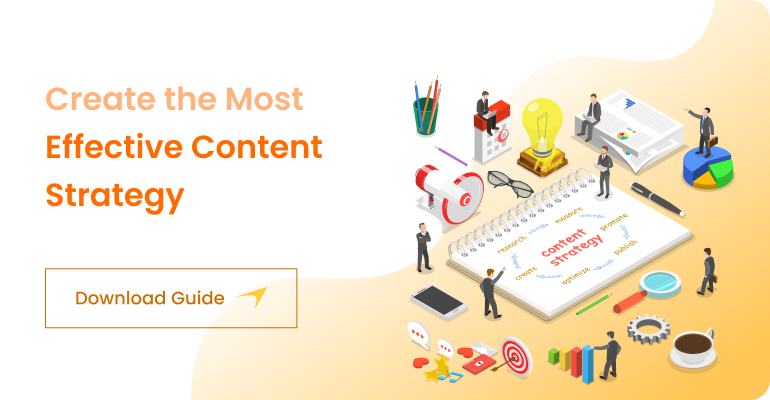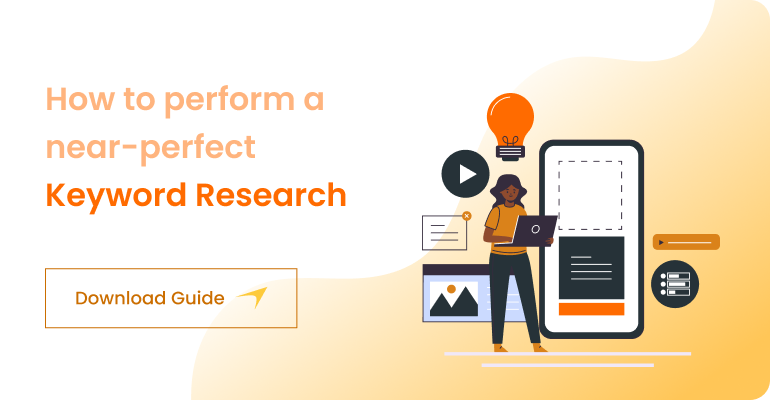5 Effective Tips for Creating Content for Buyer's Journey
6 mins | Sep 28, 2023
Technology makes us aware of many products related to our problems. It's like this product specially made for our problem solution. This technique of finding the right people for the right product is called the first step of creating content for the buyer's journey.
The buyer's journey is like a path that your potential buyer walks on their way to making a purchase. This journey consists of three significant stages: Awareness, Consideration, and Decision. Your content must align with each of these stages To win over buyers. In this blog post, we'll dive deep into how you can create content that matches each phase of this journey. Understanding the buyer's journey is crucial for effective content creation.
Creating content tailored to each stage can boost your chances of success. Why? Because it allows you to address potential buyers' specific needs and concerns. This, in turn, increases their likelihood of making a buy.
In this blog post, we will explore Content for Buyer’s Journey. We will show you how to resonate with your audience at every step of their journey.
2. Understanding the Buyer's Journey in 3 Stages
What are the three stages of the buyer's journey? These are Awareness, consideration, and decision. In the awareness stage, buyers are just becoming aware of a problem or need they have. Creating content that educates and raises awareness about your product or service as a solution is vital during this stage.
In the consideration stage, buyers are actively researching and comparing different options. Your Content for the Buyer’s Journey should have a clear focus during the decision stage. It should aim to provide a comprehensive image funnel that potential buyers might raise.
Stage 1: Awareness
The awareness stage is where it all begins with defining buyers. It's when individuals realize they have a problem or a need. But they might still need to be aware of your brand or product. To get their attention, you should create content. That content teaches them how your product or service can fix problems.
- Blog Posts Addressing Pain Points:
Write informative and engaging blog posts that address common pain points and customer journey stages. These blog posts should provide valuable insights and practical tips to help readers. It also helps them to understand their problems and potential solutions better. Include relevant statistics or research to establish credibility and prove your expertise in the industry.
- Infographics Highlighting Industry Statistics:
Create appealing infographic marketing funnel stages with industry statistics and problem-solving insights. Infographics are a great way to present complex information in a visually appealing way. You can communicate key points and grab attention using eye-catching graphics and concise text. This will increase awareness and make it more likely for your content. Also, it will be shared on social media platforms, reaching a wider audience research stage.
- Social Media Posts Showcasing Customer Testimonials:
Craft engaging social media posts with buyer's testimonials and success stories. This will help build trust and credibility with your defined buyer. They can see real-life examples of how your product or service has changed the buyer's journey. Incorporating an appealing image funnel or videos into your social media posts can enhance engagement.
Stage 2: Consideration
In this stage, buyers have found their problem and are looking for solutions. They're checking out different options, including what your competitors offer. Your content here should give them detailed info and guides to help them decide. Here are some content ideas:
- White Papers about Industry Trends:
These white papers can be helpful for people in the consideration stage. They consider the latest happenings in the industry. Helping buyers understand what's happening and how different solutions might solve their problems. These papers show marketing funnel stages that you know your product and can be trusted.
- Comparison Videos or Articles:
Make content that compares your product or service to your competitors. Show what makes you stand out to define the buyer. When you highlight your product's unique features and benefits, it can drive potential buyers to see why you're the better choice. This content helps them understand what you bring and positions you as a leader.
- Webinars to Show Product Features:
Webinars are great for showing off what your product research stage is. You can talk with your audience in real time and answer their questions. Webinars let potential buyers see how your product can meet their specific needs. Plus, they help you build trust and credibility by showing your expertise.
- Comparison Guides:
Create detailed comparisons between your product and the competition. Highlight what makes your product better, like its advanced tech, durability, or cost-effectiveness. This helps potential buyers make informed choices and see why your product shines. You can also include testimonials or case studies from happy buyers to show your product's value.
Read more - A Simple Guide to Client Testimonials & Reviews
Stage 3: Decision
The decision stage is when potential buyers are ready to make a buy. But they may still need that final push to choose your product or service over others. Your content should focus on building trust and removing any remaining doubts. Here are content formats that work well:
- Case studies showcasing successful implementations:
Share real-life examples of how your product or service has solved similar problems for other buyers. This will help potential buyers understand the practical benefits and outcomes they can expect.
- Free Trials or Demos:
Offer free trials or demonstrations to let potential buyers experience your product firsthand. This reduces the perceived risk of buying. It allows them to explore the features and functionality of your product. Make sure they find their specific needs before committing. Offering free trials or demos also allows potential buyers to ask questions. This is a chance to receive personalized support. It helps to increase their confidence in your product.
- Email Campaigns with Exclusive Offers:
Send targeted email campaigns with exclusive offers to incentivize potential buyers. Use persuasive language and a clear call to action. Highlight your product's unique benefits and features that set it apart from competitors. Also, provide a sense of urgency by including limited-time offers or discounts to encourage immediate action.
Read more - 2023 YouTube Trends
These customer journey stages are key for the create buyer journey path. Research stage and make marketing funnel stages. Create your content for your buyer’s journey.
3. Tips for Creating Content for the Buyer’s Journey
Creating compelling content for the Buyer’s Journey requires vital strategies and tips. This defines the buyer's journey, where to start, and when it is stuck. Create the funnel image of the buyer's journey by using these tips and reach them by covering it.
Here are so many ways we cover topics you can use to check customer journey stages.
I. Know Your Audience:
Understanding your audience's pain points, needs, and preferences is crucial. Conduct research and create buyer personas to tailor your content effectively. Doing so ensures that your content resonates with your target audience and addresses their specific challenges. Understanding your audience allows you to anticipate their questions and concerns, enabling you to provide valuable solutions and build trust with them.
II. Maintain Consistency:
Maintain a consistent brand voice and message throughout your content. This helps in building brand recognition and trust. It is also essential to consider the different stages of the buyer's journey. When creating content by providing relevant and valuable information at each location. So you can guide your audience towards making a buying decision. Additionally, analyzing and measuring the performance of your content. It can help you make necessary adjustments and improvements to meet your audience's needs better.
III. Use Storytelling:
Craft narratives within your content that resonate with your audience. Stories make your content relatable and memorable. They create an emotional connection and can communicate the benefits of your product or service. They are using storytelling techniques like creating exciting characters and being well-structured. It can grab your audience's attention and keep them engaged through their buyer's journey.
IV. Leverage Visuals:
Incorporate visuals like images, videos, and infographics to make your content more engaging. Visuals not only capture attention but also enhance understanding and retention of information. They can convey complex ideas in a simplified manner and help your audience visualize the benefits of your product or service. Visuals can make your content more shareable on social media platforms, increasing its reach and impact.
V. Provide Value:
Ensure that each piece of content provides value to your audience. Offer solutions, insights, or entertainment that align with their needs. By providing valuable content, you establish yourself as a trusted authority in your industry and build a loyal following. This can lead to increased engagement, conversions, and business growth. Delivering value to your audience can help you stand out from competitors and position your brand as the go-to resource in your niche.
Read more - Best Content Types in 2023
Whenever you start creating content for buyers, include these tips in your content. Every tip is important to cover the entire buyer’s journey. After implementing these tips in your content marketing funnel, you must measure the effect on your buyer's behavior. In the next topic, we cover how many ways to measure your content’s effectiveness.
4. Measuring Content Effectiveness for Buyer's Journey
Checking how well your content is doing is essential for improving your strategy. You can use various metrics like engagement rate, click-through rate, and conversion rate to measure. When you look at these numbers, you can determine what content your audience likes.
Start using that data to make your Content for the Buyer’s Journey. Also, keeping an eye on these metrics helps you change and make your content even better over time for the most impact.
I. Traffic:
Keep an eye on the number of buyers to your website and social media platforms. This metric can provide valuable insights into the reach and popularity of your marketing funnel. By monitoring traffic, you can identify trends and patterns in the buying journey. Tailor your content to meet their needs and preferences better.
II. Engagement:
Analyze how your defined buyer interacts with your content. Look at metrics such as likes, shares, comments, and the time spent on your content. These metrics can provide insights into how well your content resonates with your audience, whether driving meaningful engagement or not.
III. Conversion Rate:
Track the percentage of visitors who take the desired action, such as signing up for a newsletter or purchasing. A high conversion rate indicates that your content is effective in driving action. Analyzing your conversion rate to understand its effectiveness regularly is essential. A low conversion rate may show that adjustments must be made to improve. The overall impact of your content and increase engagement with your audience.
IV. ROI (Return on Investment):
Calculate the return on investment for each piece of content. Compare the cost of creating and promoting the content with the revenue generated. A positive ROI is a clear indicator of success. Tracking the ROI can help you prioritize and allocate resources toward the most effective content strategies. It allows you to identify which pieces of content generate the highest returns and optimize those for even better results.
V. Challenges and Common Pitfalls:
Creating content for the buyer's journey comes with challenges. One challenge is understanding the different stages of the buyer's journey and tailoring content. Another challenge is keeping up with evolving consumer preferences and trends.
VI. Skipping Stages:
Take your time with the stages and pay attention to all of them. Each step is crucial in guiding potential buyers toward a buying decision. Skipping stages can result in missed opportunities to engage and nurture leads. Your rush is hindering the conversion process. It is essential to provide relevant and valuable content at each stage to address the needs and concerns of potential buyers.
VII. Overloading with Information:
While providing valuable information is essential, avoid overwhelming it. Your audience here is with too much information too soon. Introduce complex details as they progress through the journey. This approach allows potential buyers to digest the information. Make sure to ensure they feel safe and confident. You can build trust and credibility with your audience by introducing complex details. They will understand their needs and be able to provide the correct information at the right time.
VIII. Neglecting SEO:
Search engine optimization (SEO) is essential for making your content discoverable. Remember to use relevant keywords to improve your content's visibility. By neglecting SEO, your content may not reach its intended audience. It may get buried among other similar content. Incorporating SEO techniques can help increase organic traffic to your website. The proper use of SEO drives more engagement and conversions.
VIII. Ignoring Feedback:
Customer feedback is a goldmine of insights. Please pay attention to what your buyer is saying, and be willing to adapt your content based on their feedback. You can better understand customer needs by incorporating customer feedback into your content. This improves the quality of your content and helps build stronger relationships with your buyer. Feedback leads to increased loyalty and brand advocacy.
Furthermore, tracking traffic can help you identify any potential issues or areas. Improve your website or social media platforms, ensuring a seamless user experience for your audience.
5. Content Distribution Strategies
Creating great content for a buyer’s journey requires effective distribution strategies to ensure your content reaches your target audience. Here are some distribution strategies to consider:
I. Social Media Marketing:
Take advantage of popular social media platforms to share your content. OptimizeOptimize your content to suit each platform and engage with your audience. This can include creating appealing graphics for Instagram, Twitter, and LinkedIn posts. By utilizing social media marketing, you can reach a wider audience. It increases the chances of new buyers sharing and discovering your content by collaborating with influencers or industry experts with a large social media following. This amplifies the reach of your content.
II. Email Marketing:
Build and segment your email lists to send targeted content to specific groups of subscribers. PersonalizePersonalize your emails to make them more appealing. Email automation tools will streamline your email marketing efforts and ensure timely delivery. Furthermore, analyze the performance of your email campaigns through metrics. It includes open and click-through rates to optimize your strategies and improve engagement.
III. Guest Posting:
Collaborate with influencers or industry experts by writing guest posts for their websites. This expands your reach and establishes your authority. Additionally, guest posting allows you to tap into the existing audience of these influencers or experts. It increases your chances of attracting new followers and potential buyers. It also allows you to build valuable relationships within your industry.
IV. Paid Advertising:
Consider spending money on search engines and social media ads to get more people to see your content. Make clear goals and budgets for your ad campaigns. Paid advertising lets you aim at particular keywords and groups of people, helping you reach a bigger audience. It also makes it easier to monitor and study how well your ads are working so you can use that info to plan future marketing strategies.
These techniques help to reach global audiences and convert them to your product. Paid advertising targets specific keywords and groups to reach global audiences. It increases conversion rates and provides valuable insights for future marketing strategies.
Read more - Why your business needs a digital marketing agency?
6. Conclusion
Creating content for every stage of the buyer's journey is like being a great tour guide. You're on the right track when you understand your audience's needs at each step and create content that fits the bill. Remember that the content landscape is ever-evolving, so stay tuned to your audience's preferences and adapt your strategies.
You can turn curious visitors into loyal buyers with the right content strategy. So, start creating content that guides your audience through the content for the buyer's journey, and watch your business thrive.
This information is beneficial for defining the buyer's journey. Visit our website to learn more about marketing strategies for your business.
Author

Share
Share
Related

What Is AI In Content Marketing? What Are Its Benefits & Challenges? Explained In Detail
6 mins : Jan 27, 2024
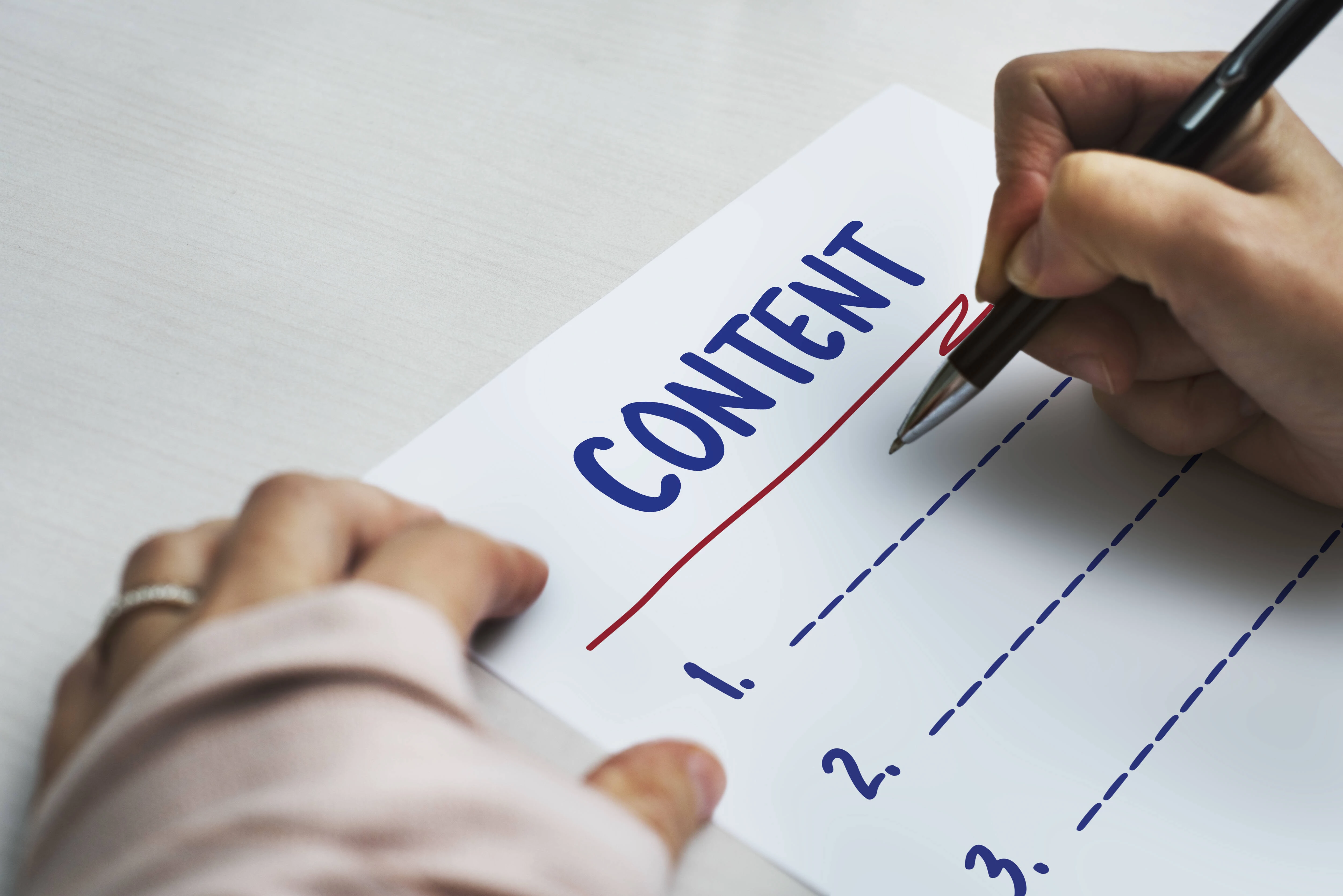
10 Easy Ways to create high-quality content
5 mins : Sep 28, 2023
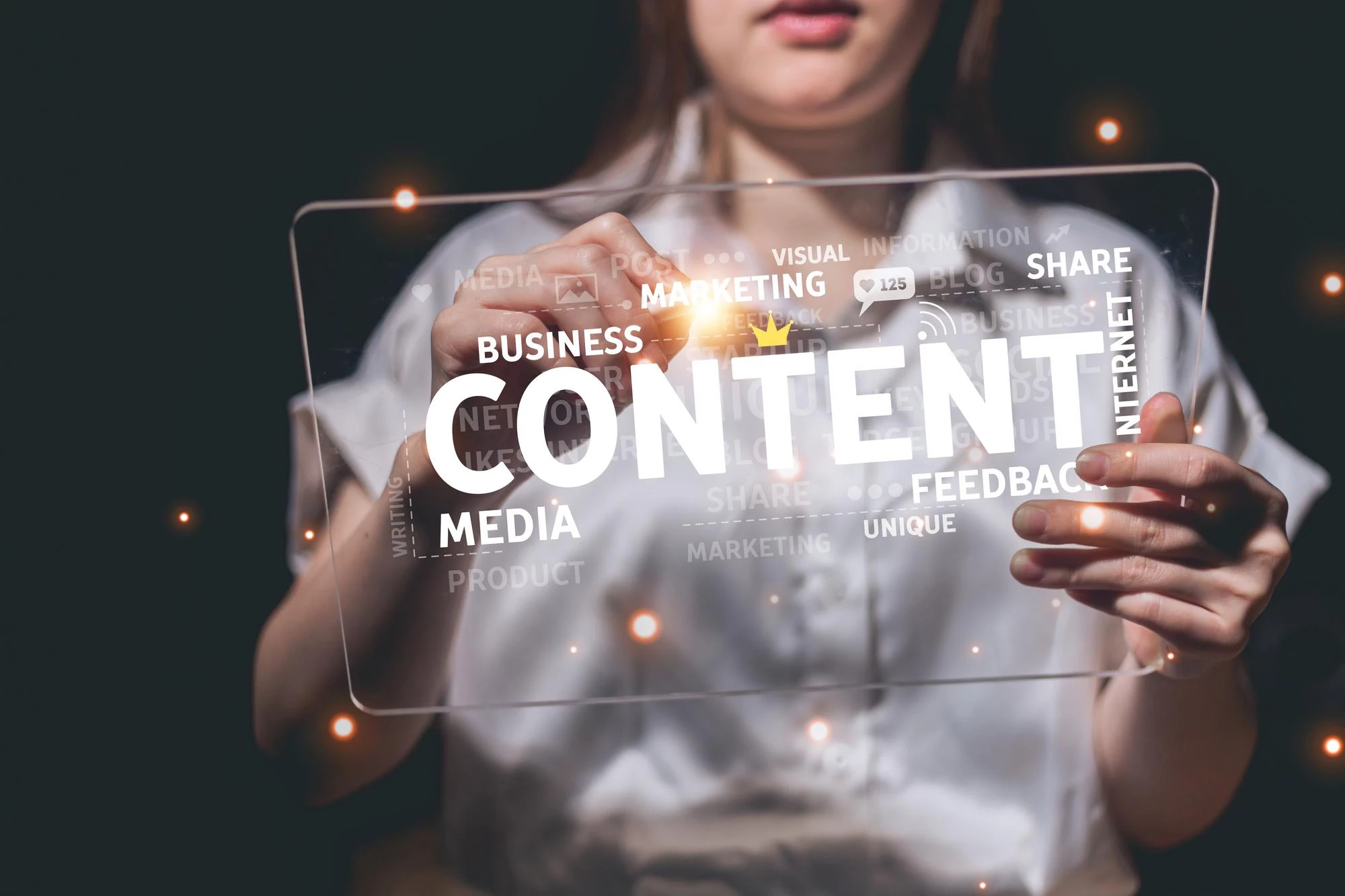
Inspiring Content Marketing Examples to Elevate Your Strategy
6 mins : Dec 25, 2023
Other Articles
.webp)
The Ultimate Guide To Content Distribution Strategy In 2024
5 mins : Feb 01, 2024
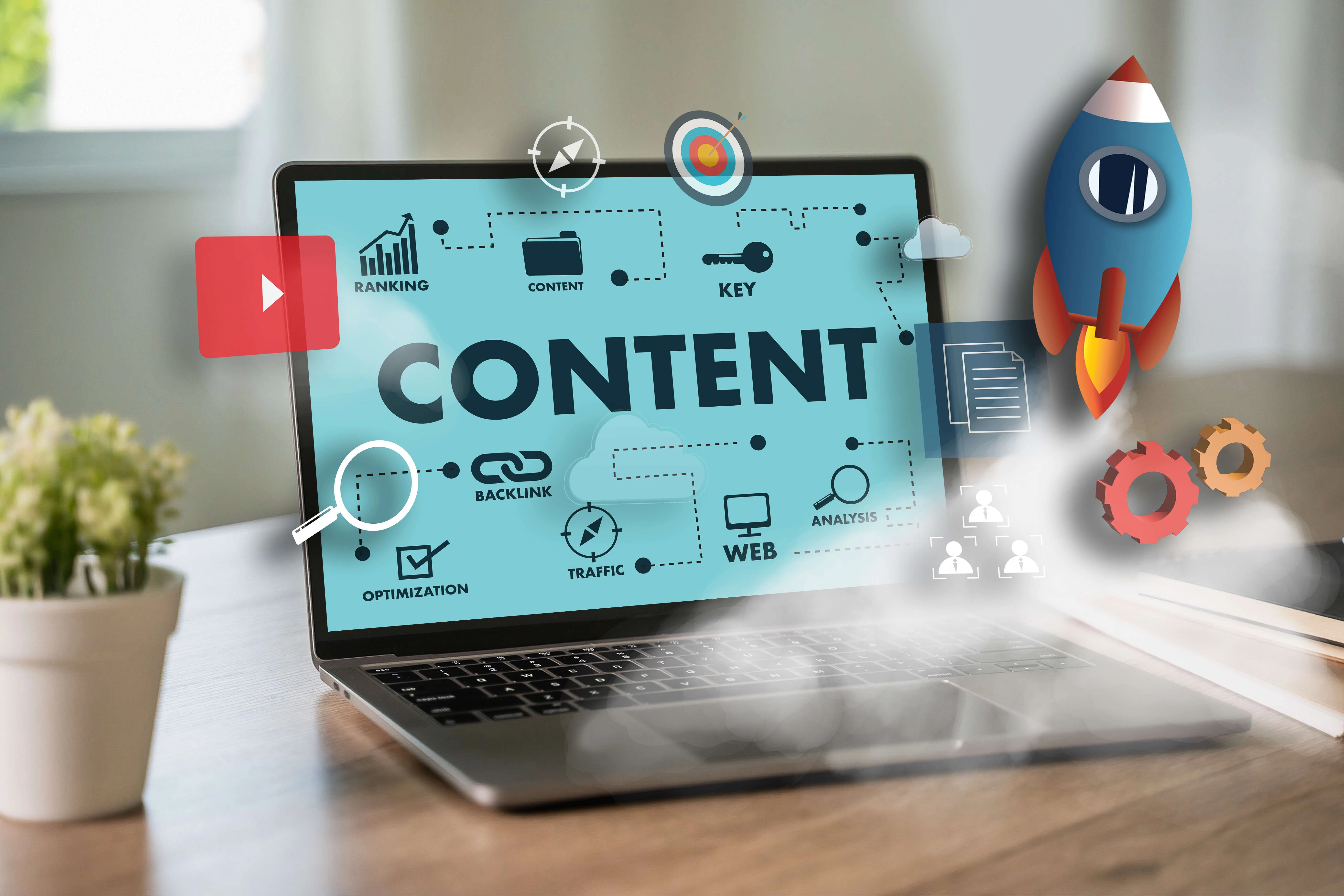
21 Content Marketing Metrics That Every Marketer Should Track
5 mins : Dec 25, 2023
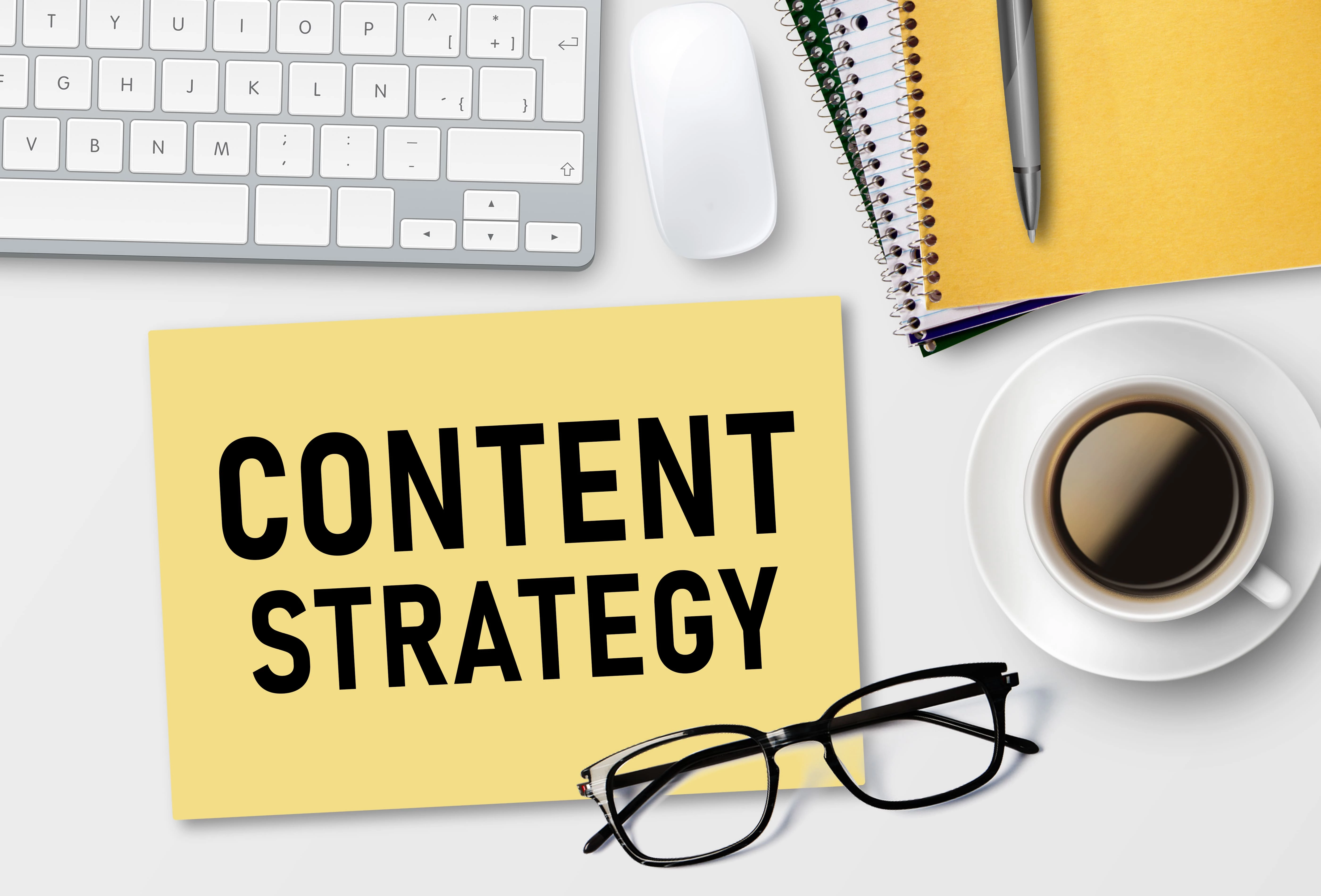
Content Strategy 101: A Practical Guide For Beginners
5 mins : Jan 22, 2024
